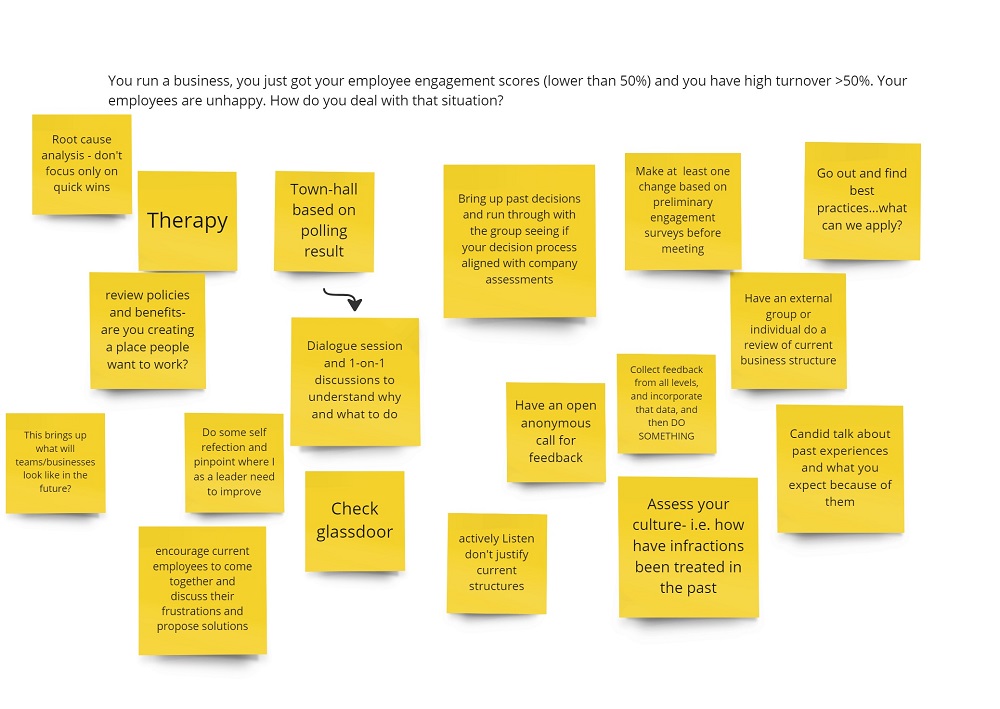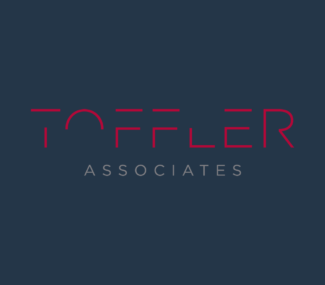What will Gen Z leadership look like?

The Gen Z Leadership movement is coming sooner than you think. But what will Gen Z leadership look like?
Think ahead to 2035. Hybrid workplaces will teem with energy as the earliest Generation Alpha workers graduate college and enter the workforce, eager to contribute their talents as the first generation of “AI Natives.” Boomers will be retired, with Gen Xers soon to follow, and the “Born Digital” generations—Millennials and Gen Z—will be eager to take over positions of power. A decade from now, Generation Z will be in the middle stages of our careers, with compounding decades of experience under our belts and an appetite for positions of power that allow us to direct change in our organizations.
What makes Gen Z different?
Generations’ work styles are molded by their socioeconomic circumstances. Baby Boomers were raised in an era of post-war economic prosperity and Cold War patriotism, meaning many of them developed characteristics of loyalty to their teams and a preference for traditional power structures. By contrast, Gen Z witnessed some of the most dramatic social and political upheavals of the past five decades through an endless stream of content on our phone screens, and graduated into the workforce in the midst of the COVID-19 pandemic and economic woes. The lack of a socio-economic foothold, mixed with globalism at our fingertips, means Generation Z craves flexibility, greater access to emotional and mental health services, and work that serves a greater societal purpose.
How does Gen Z view work?
As Gen Z continues to matriculate into the workforce, we have already seen stark differences compared to older generations. Up to 90% of young workers surveyed prefer hybrid or fully remote working arrangements, with only 10% preferring to be in-office full time and 29% preferring full-time work from home. Gen Z also struggles more than older generations with emotional and psychological health. Gen Z is 25% less likely than Boomers to report that they have good mental health, and 91% of Gen Z adults reported experiencing physical symptoms of stress such as depression or fatigue, impacting them both in the office and in their personal lives. Most of all, we have a strong preference for authentic, purpose-driven organizations. 77% of Gen Z says it is important to work with an organization whose values align with our own, and we are more than familiar with the tools needed to fact-check to ensure organizations are following through on their commitments.
How will Gen Z lead through the challenges of 2035?
What do these characteristics look like in practice? The challenges of 2035 may differ greatly from the traditional business challenges of the past, as more frequent climate calamity, incongruous AI integration, and the potential loss of American hegemony reshape the world outside of work. Gen Z leaders will have to navigate these novel challenges and try to break through rigid traditional workplace structures and culture as they try to define their own identity.
We anticipate that Generation Z will be more multidisciplinary, less tenured leaders and that they will place less emphasis on company loyalty and more focus on their organization’s community impact and underlying mission. They may be more open about mental and emotional health struggles, and encourage employees to do the same. They will lead hybrid, global organizations without geographic bounds, leading to a more competitive and diverse pool of talent from which to hire.
Using scenario analysis to see how Gen Z might lead
To illustrate how Gen Z might lead, we presented a focus group of our Gen Z Toffler colleagues with three different crisis scenarios and prompted them to brainstorm responses as organizational leaders. By exploring their answers, we can understand how Gen Z’s characteristics carry over to their leadership style, and stress-test their responses.
Scenarios reflected climate, cyber, and banking calamity
The scenarios included a climate-related warehouse closure and layoff, a cyber-attack on a bank resulting in complete collapse, and a business experiencing extremely low employee engagement and high turnover. In many ways, these scenarios resemble familiar challenges business leaders face today, as did some of the Gen Z responses. Their top priorities were to provide severance for laid-off employees in the warehouse scenario, working with other organizations to mitigate financial collapse in the case of the bank failure, and conducting an internal survey to identify the sources of dissatisfaction in the case of the employee engagement crisis.
“Living” in the future, Toffler’s Gen Z group responded with empathy, flexibility, and a focus on community
However, the Gen Z focus group also proposed several responses more in tune with “stereotypical” Gen Z qualities such as including mental health services as part of the severance package and exploring remote and hybrid options to carry over certain employees whose jobs previously relied on a physical location. They sought to communicate as openly and directly as possible with media organizations and employees to provide a wealth of information, rather than limiting information for the perceived public good. They recognized that factors impacting employee engagement may include external stress from ongoing global crises or problems at home, factors which may neither be reflected in an employee survey nor answered by traditional employee engagement responses.
Overall, our colleagues differentiated their responses by leaning into their empathy, flexibility, and reliance on community, in line with the predictions about their leadership style based on the characteristics we have already seen.
How can organizations prepare for Gen Z to lead?
Gen Z strives to change what they see as the antiquated tendencies of past generations in the workplace, but so has every generation before them. Each generation comes into the workforce with aspirations of setting a new standard, but how can we pave the way for Gen Z to actually make it happen? Leaders today should follow the momentum perpetuated by younger generations and anticipate the business obstacles of the future to ensure they have resilient strategies in place for future leaders.
Invest in Gen Z growth
The best way to set up Gen Z for success in leadership is to ensure we are developing the skills needed to be effective leaders. We are projected to be the most educated generational cohort yet, and we want to continue that learning on the job to develop an array of skills to carry with us to any position. 83% of Gen Zers want to upskill in their current role, and 76% of us see the development of tangible skills as the key factor in our career advancement. The benefits of investing in upskilling and reskilling for Gen Z employees are a two-way street. While we gain a foundation to advance our own career interests and market ourselves as multidisciplinary and technically proficient professionals, organizations gain employees who perform better and stick around longer in their roles, and may even go on to lead the very organizations who invested in them in the first place.
Strategically plan with an eye on 2035 challenges
Additionally, organizations should strategically plan for a future that is increasingly complex both in nature and in pace of change. One major piece of legwork will be determining which of today’s work “trends” are here to stay. Hybrid work and the increasing need for stress mitigation are likely permanent vestiges of COVID. Rather than trying to go back to “the way things were” pre-pandemic, business should explore ways to embrace the new normal and set up practices that are more palatable to younger colleagues entering the workforce.
On the other hand, organizations should consider the unique challenges of 2035 and beyond, and how they will differ from previous, more predictable challenges they have faced. Forecast how current trends in climate, technology, globalization, and regulation will impact how the workplace and society look in 2035 and establish procedures to prepare for these future scenarios. Doing so will establish a framework for Gen Z leaders based in the world they are leading, rather than having to modulate business strategies built for the 20th century.
Let Gen Z hold itself accountable
Gen Zers must also turn the spotlight on ourselves and hold ourselves accountable for the change we claim to want in the workplace. We must take responsibility for our accolades as much as our mistakes in the workplace and apply the same scrutiny to each other as we do to those in power when they do not follow through on their commitments. If we are going to differentiate our leadership style from previous generations, we have to see these changes through–and not give up on them in the name of convenience or tradition.



 About the Authors
About the Authors